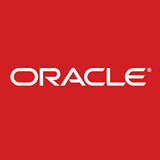
I find Oracle Solaris exceptional for its stability and reliability. The built-in virtualization tools, Zones and LDoms, are powerful assets. I also appreciate the advanced ZFS file system and the DTrace tool for real-time performance analysis. Additionally, it provides a highly stable, secure, and efficient foundation that allows enterprises to focus on their core business without the stress of system management and downtime. The initial setup for a standard, fresh installation on supported hardware is designed to be efficient and manageable. Review collected by and hosted on G2.com.
The main drawbacks of Oracle Solaris generally center on cost, market position, and ecosystem size when compared to open-source alternatives like Linux. Review collected by and hosted on G2.com.
Validated through LinkedIn
This reviewer was offered a nominal gift card as thank you for completing this review.
Invitation from G2. This reviewer was offered a nominal gift card as thank you for completing this review.




